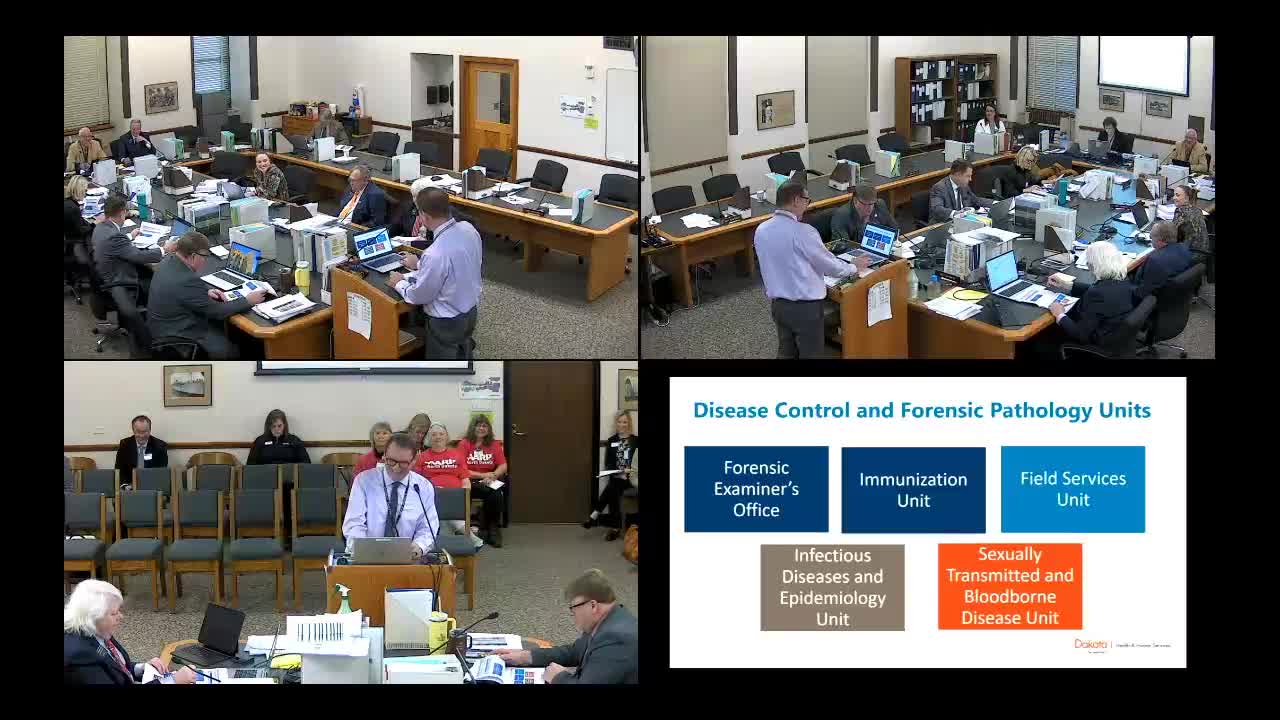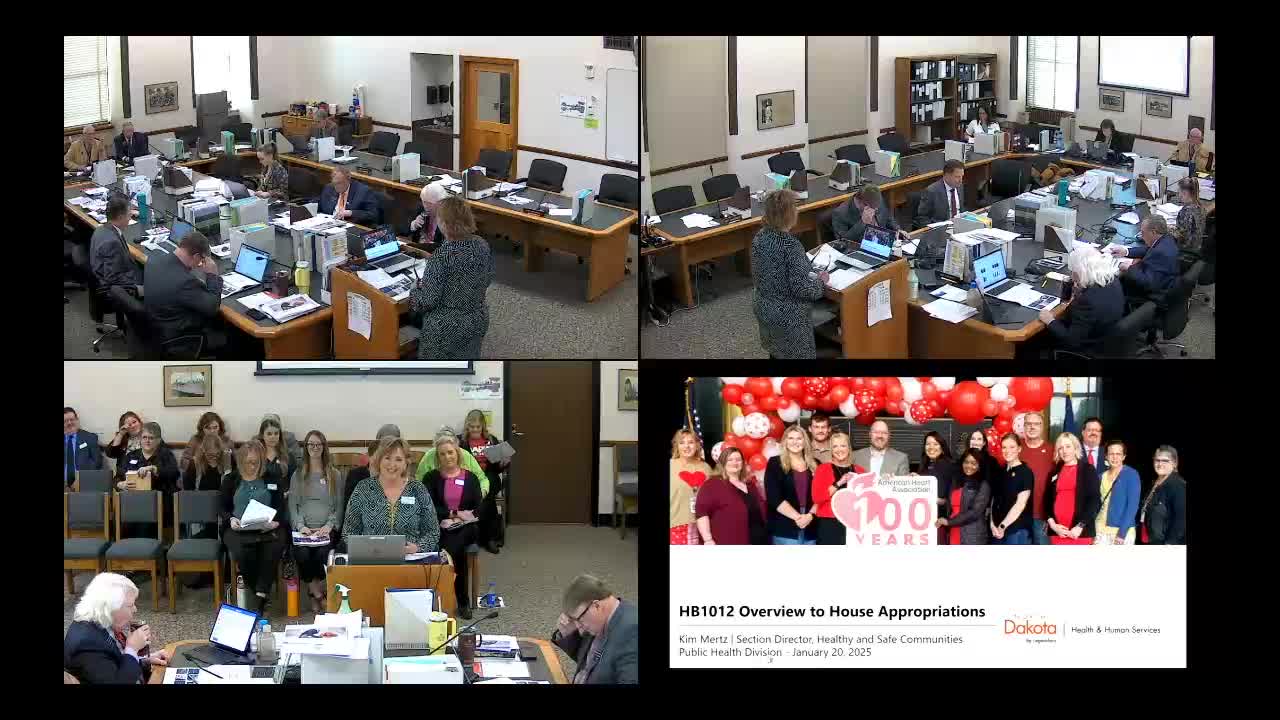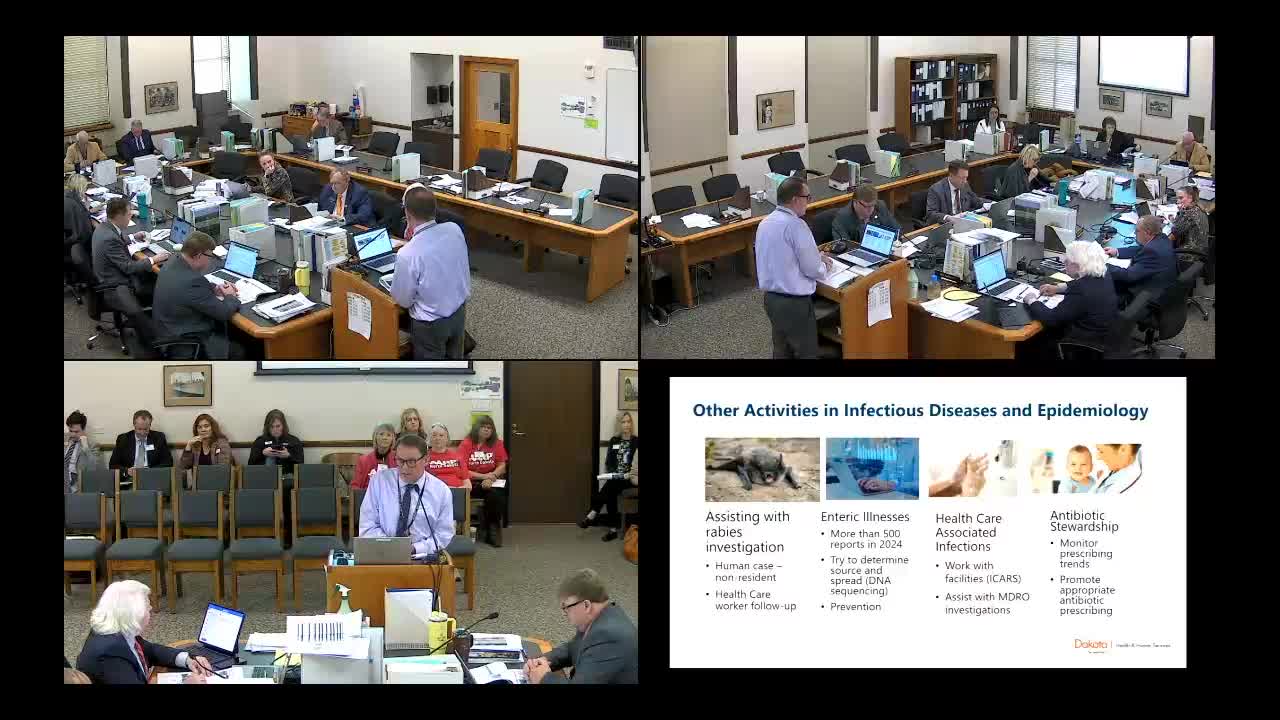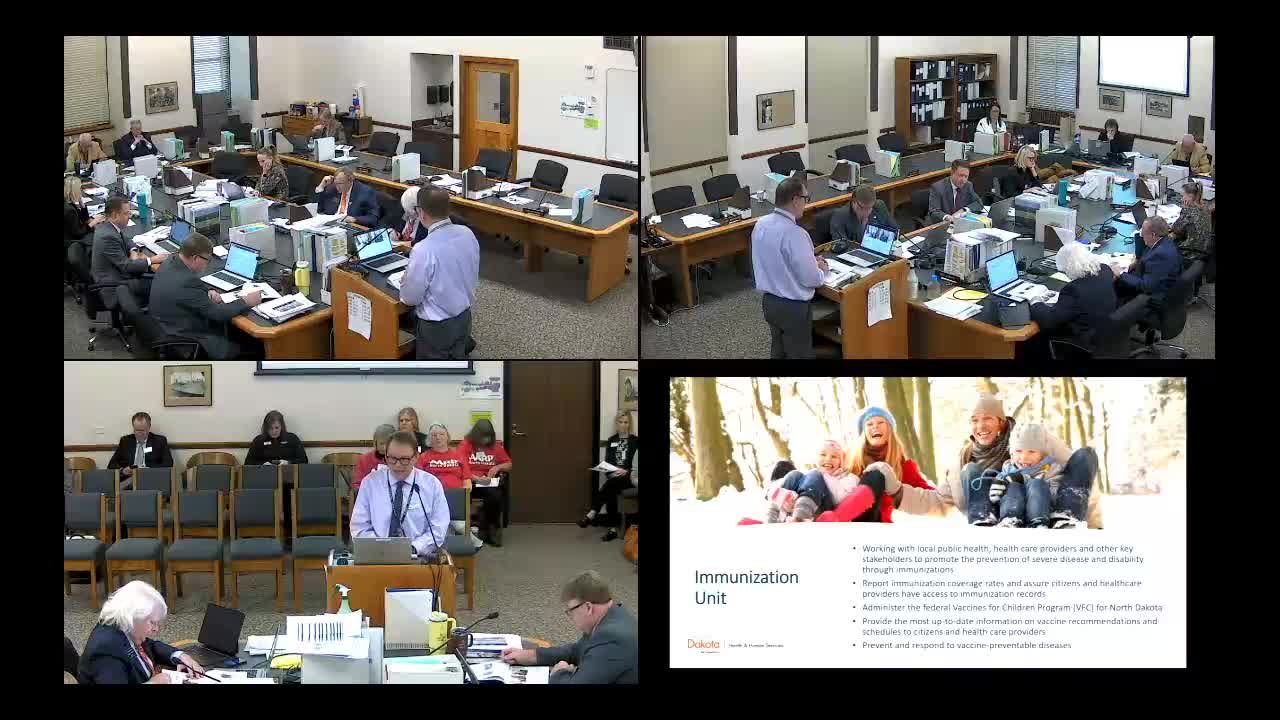Article not found
This article is no longer available. But don't worry—we've gathered other articles that discuss the same topic.

State health officials ask for $1.86 million increase to cover UND autopsy work as forensic pathologist shortage continues

Healthy and Safe Communities section seeks $2 million for maternal services, highlights WIC, loan‑repayment and domestic‑violence proposals

Health officials report sharp syphilis rise, describe rare human rabies investigation and virus sequencing work

